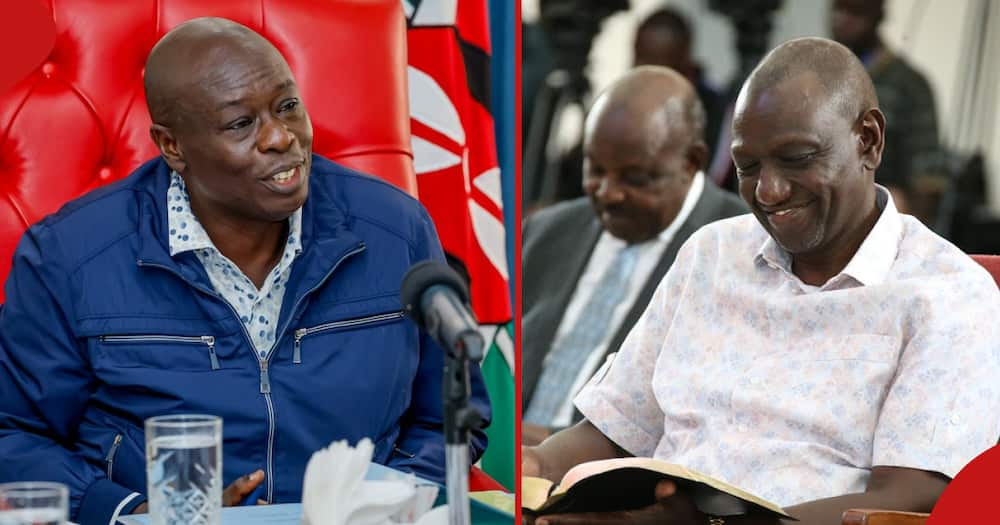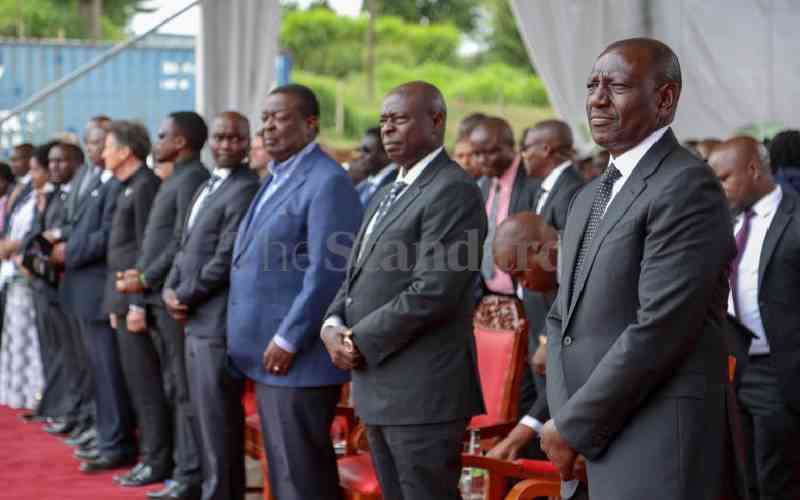The political landscape in Kenya has always been marked by shifting alliances and dynamic power struggles.
The emerging rift between President William Ruto and Deputy President Rigathi Gachagua, spurred by their allies, is a stark reminder of this chameleonic nature.
This evolving scenario not only exposes the fragility of political loyalties but also underscores the relentless pursuit of power that defines Kenyan politics.

Most notably, many of the politicians who once ardently defended President Ruto during his tenure as Deputy President under former President Uhuru Kenyatta are now leading a not-so-secret crusade against Gachagua.
This shift in allegiance illuminates a broader trend within Kenyan politics: the rapid reorientation of political alliances to align with perceived future opportunities.
During the Jubilee administration, these leaders were vocal in their condemnation of Uhuru Kenyatta for allegedly undermining his deputy.

They accused him of transferring Ruto’s roles to Cabinet Secretaries and other junior staff, isolating him after the 2018 handshake with Opposition leader Raila Odinga, and excluding him from key government meetings.
Their commitment to defending Ruto was framed as a moral crusade against Uhuru’s perceived injustice.
Among these defenders was Kiharu MP Ndindi Nyoro, who is now touted as Gachagua’s potential replacement in 2027.
Nyoro, a staunch supporter of Ruto during the Jubilee years, has been active in church fundraisers, claiming donations from the President and signaling his ambitions through his actions and the rhetoric of his supporters.

His recent activities and the accompanying narrative of “Murang’a’s time” to produce a deputy president reflect a strategic positioning for future political gains.
The political battalion aiming to unseat Gachagua argues for a generational change, suggesting Nyoro as the best-suited leader to succeed Gachagua. MPs from Murang’a believe that it is their county’s turn to ascend to higher political office, following the precedence set by Kiambu and Nyeri.
This sentiment is echoed by Murang’a Senator Joe Nyutu, who argues for Nyoro’s candidacy as a move towards unity and recognition in national politics.
Ironically, these very politicians who decried Uhuru’s alleged marginalization of Ruto now engage in similar tactics against Gachagua.

Kirinyaga Governor Ann Waiguru, once a vocal critic of Uhuru’s treatment of Ruto, has shifted her stance, accusing Gachagua of personalizing the Deputy President’s office and stifling ambition within the party. Her comments underscore the fluidity and self-serving nature of political allegiances in Kenya.
The silence of leaders from Rift Valley, who were once united in defending Ruto, further highlights the selective nature of political loyalty.
Their absence in the current Mt Kenya supremacy battle suggests a strategic retreat, possibly to avoid entanglement in a regional power struggle that could jeopardize their own political standing.
National Assembly Majority Leader Kimani Ichungwa’s fence-sitting reflects a broader uncertainty within the political establishment.
His historical support for Ruto juxtaposed with his current ambivalence illustrates the cautious maneuvering typical of Kenyan politicians who seek to hedge their bets in an unpredictable political environment.
In conclusion, the emerging rift between President Ruto and Deputy President Gachagua is a microcosm of Kenya’s broader political dynamics.
It reveals a system where political survival often trumps loyalty, and where shifting allegiances are the norm.
As the 2027 elections approach, these political maneuvers will likely intensify, further exposing the chameleonic nature of Kenyan politics.
The key question remains whether these shifting alliances will lead to a more inclusive and stable political landscape or simply perpetuate the cycles of division and realignment that have long characterized the nation’s politics.







More Stories
Collaboration Between Ministries Launches SHA Registration in Coast Region
“Take the Lead”: Joyce Murabu Encourages Parents to Prioritize Children’s Learning
Cledun Realtors Ltd: Pioneering Change in Kenya’s Real Estate Sector